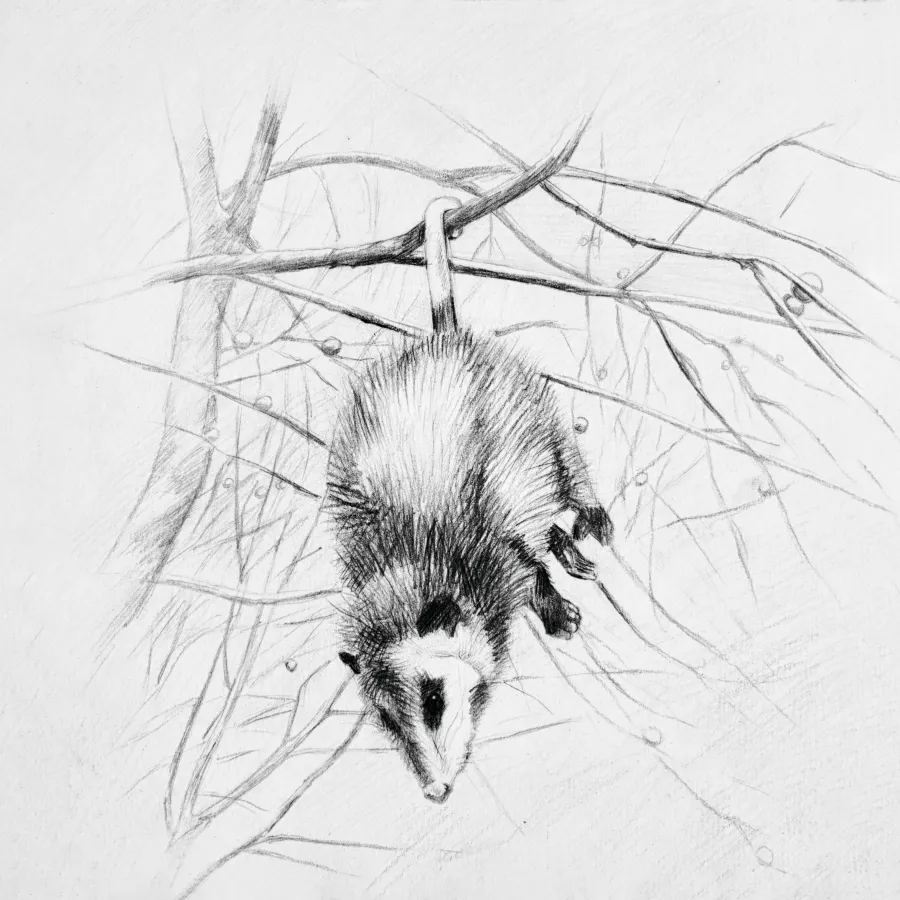
Opossums
Opossums
The Virginia opossum or commonly known as "opossum" is a native mammal in Georgia and is the only marsupial in North America. Opossums are nocturnal (mostly active at night), but can be seen occasionally during daylight hours. Because they are marsupials, the breeding behaviors are very different compared to other animals. Opossums generally mate in late winter or early spring and have an average litter size ranging from 4-20 with the average around 7 and have a very brief gestation period of 12 days. The young climb into a pouch located on the female's abdomen. In the pouch, female opossums suckle and shelter their newborn young for almost 70 days until they are fully developed. The young are completely weaned at about 100 days. Opossums have an average of 2 litters annually. Opossums are omnivorous and will eat a wide variety of plant, insect and meat foods. Carrion (dead animals), garbage, and even young of their own species are part of their diet. Opossums have an interesting defense strategy, when attacked, they will "play possum," pretending that they are dead. They will remain still, they do not blink, and their tongue hangs out. They have even been known to kill and eat venomous snakes (opossums are remarkably immune to snake venom) and will eat large numbers of ticks. Opossums can be a nuisance because they love to nest under low decks, in attics and crawl spaces and leave unpleasant odors where nesting. There are health concerns associated with Opossums and their abilities to transmit diseases and the more common concerns are leptospirosis, tuberculosis, coccidiosis, spotted fever, tularemia, and other diseases.

